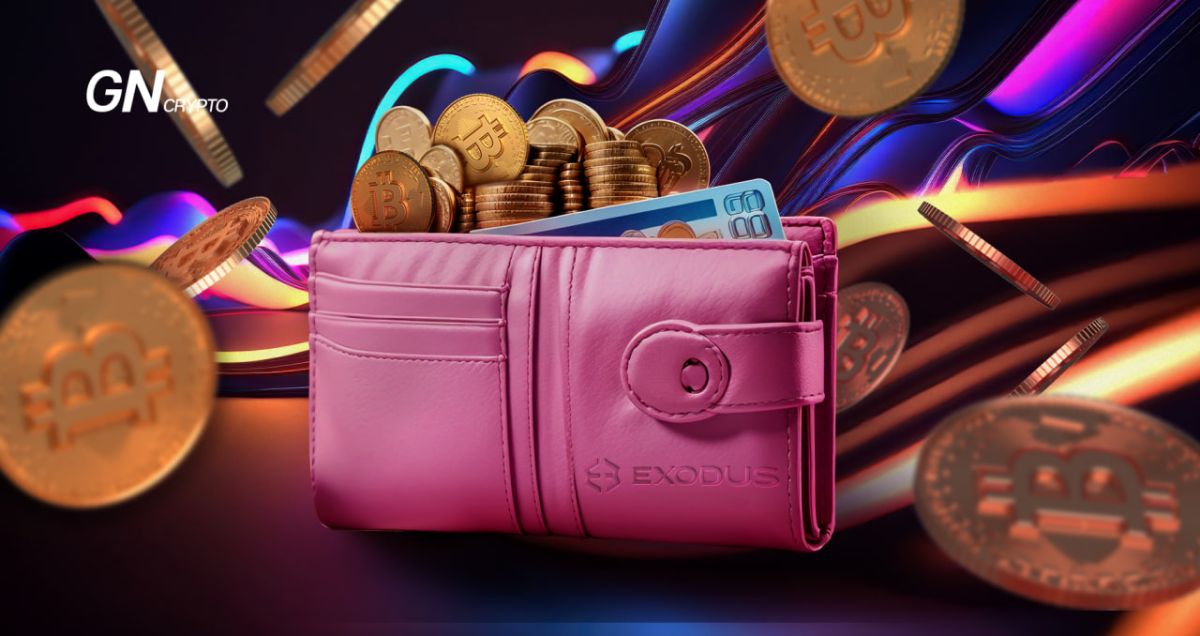Exodus Wallet: Is It Safe?

Exodus wallet is a software storage solution designed for cryptocurrency transactions and perfectly suited for holding modest quantities of assets. Since its 2016 debut, its refined interface and straightforward functionality have earned it widespread acclaim.
On this page
What is the Exodus wallet?
The Exodus wallet is an American venture founded by software developers and crypto enthusiasts, Daniel Castagnoli and Jon Richardson. They envisioned creating a cost-effective and simple-to-use application for trading and storing digital assets, aiming to make it accessible even for newcomers. While initially the focus was solely on a desktop variant of the Exodus wallet, the overwhelming demand led to the rollout of a mobile version just two years later.
In May 2021, the team successfully conducted a public token sale, overseen by the SEC, pulling in $75 million for ongoing project advancements. This marked the project's inaugural external fundraising effort.
The wallet has both mobile and desktop versions. Source: exodus
Exodus Wallet Review
The Exodus wallet app is structured around three main features:
- A versatile wallet for multiple functionalities;
- An investment tracker;
- A built-in cryptocurrency exchange for swift asset trades.
The desktop variant provides added functionalities:
- Backup options to restore passwords or recovery phrases;
- Adjustable security settings and interface aesthetics;
- A robust customer support system, complete with videos, FAQs, tutorials, and a Slack channel for direct communication.
It's compatible with Windows, macOS, and Linux operating systems.
Using the app, one can directly buy digital currencies with US dollars or euros. Additionally, it provides access to over 25 digital currencies using a credit/debit card, bank transfers, or Apple Pay through the Exodus Mobile feature. A Web3 Wallet extension is also available for browsers like Chrome and Brave, allowing users connectivity to Ethereum, Solana, BSC, and more.
While the Exodus wallet boasts a clean interface for trade, staking, and investment monitoring, it does fall short on certain security measures when compared to its peers.
Benefits of the Exodus wallet
1. User-Friendly Design. Exodus stands out for its intuitive interface, making it a prime choice for both newcomers and experienced traders. Its design simplifies asset management, viewing of portfolio balances, and tracking transaction histories. Additionally, its in-app one-click exchange feature streamlines the trading process.
2. Extensive Asset Support. Exodus provides support for more than 260 cryptocurrencies and approximately 1,000 NFTs. This includes not only mainstream cryptocurrencies like BTC and ETH but also a wide range of popular ERC-20 tokens and niche altcoins.
3. Earning Opportunities. The platform facilitates the use of apps for staking, placing crypto bets on sports events, and managing Solana-based NFTs.
4. Free Download and Usage.
5. Adaptive Fee Model. Exodus implements a dynamic fee model, adjusting transaction fees based on the prevailing network congestion. This means the wallet automatically recalibrates fees in response to network conditions, without any manual intervention.
6. Private Keys. Users retain full control over their keys, which are stored locally on their devices without third-party involvement.
7. Privacy. The Exodus wallet doesn't require users to share personal details; logging into the app simply requires 2FA.
Drawbacks of the Exodus wallet
While the Exodus wallet boasts several benefits, it's crucial to be aware of its limitations:
1. Closed Source Code. Unlike many other wallets that offer an open-source code, the Exodus wallet's code isn't publicly available. This means users can't scrutinize its security features themselves. This aspect also hints at a level of centralization in the project.
2. Higher Exchange Fees. Exodus tends to charge exchange fees that can range from 2–4% of the total transaction value. In situations where there's network congestion, especially with BTC transactions, these fees can surge even higher.
3. Security Concerns. Exodus prioritizes user experience, sometimes at the cost of advanced security. Due to this approach, the creators discourage storing large amounts of assets in the wallet for long durations.
4. Limited Fiat Integration. Users looking to transact between fiat and cryptocurrencies might find themselves needing external platforms or services, as Exodus doesn't offer full fiat integration.
Is Exodus wallet safe?
Exodus does not have access to user data. In the world of cryptocurrency, this emphasizes that each user must take responsibility for the security of their assets. Like any software wallet, Exodus is only as secure as the device on which it's installed. If your device has been hacked or infected with malware, there's a potential risk of losing stored funds.
During the initial setup, Exodus provides users with a 12-word seed phrase, which can be utilized to recover the wallet if the device is lost or malfunctions. If you've kept this seed phrase in a safe place, then using the backup feature to restore your wallet is relatively straightforward.
It's crucial to note that the Exodus wallet functions as a hot wallet, meaning it's continuously connected to the internet. If you're uncomfortable with this level of risk, you might consider using a hardware wallet (such as Ledger or KeepKey) for safer storage. Additionally, Exodus supports integration with the Trezor hardware wallet, offering an added layer of security for its users.
The content on The Coinomist is for informational purposes only and should not be interpreted as financial advice. While we strive to provide accurate and up-to-date information, we do not guarantee the accuracy, completeness, or reliability of any content. Neither we accept liability for any errors or omissions in the information provided or for any financial losses incurred as a result of relying on this information. Actions based on this content are at your own risk. Always do your own research and consult a professional. See our Terms, Privacy Policy, and Disclaimers for more details.



























